![Golub, Phillip: Filters [VINYL + DOWNLOAD] (Greyfade) Golub, Phillip: Filters [VINYL + DOWNLOAD] (Greyfade)](https://www.teuthida.com/productImages/misc4/32379.jpg)
Approaching the concept of endless repetition, New York composer and pianist Phillip Golub (Tropos, Sarafand Ensemble, Cecil McBee) presents his debut solo piano album, a contemplative set of system-based looping phrases that open up to improvisational variety in live performance, here in four renderings that defy the categorization of a "loop".
In Stock
Quantity in Basket: None
Log In to use our Wish List
Shipping Weight: 24.00 units
EU & UK Customers:
Discogs.com can handle your VAT payments
So please order through Discogs
Sample The Album:
Phillip Golub-piano, composer
Click an artist name above to see in-stock items for that artist.
Edition of 200 copies.
Label: Greyfade
Catalog ID: 005
Squidco Product Code: 32379
Format: LP
Condition: New
Released: 2022
Country: USA
Packaging: LP
Recorded at the private residence of Peter and Sarah Mandell.
"What does it mean to physically perform something that repeats endlessly? To press down the keys on a piano in the same way, over and over again, rather than to simply offload the process of repetition to a machine? What are the emotional and narrative implications for performer and listener when the musical process must be realized manually - through continuous conscious effort - rather than automatically, through the press of a button?
Filters, the solo debut of pianist and composer Phillip Golub (b. 1993), implicitly poses and answers exactly such questions about the nature of repetition and performance, all through the prism of his lucid pianism.
"Even a listener who doesn't know the technicalities of digital repetition can sense that there's something different about these loops," he says. "When we know the repetition is not mechanical, there's a certain feeling of needing to stay very focused with the performer, to be there with them." The process of manual repetition, then, resembles for Golub a kind of ritual, rather than merely a technological process. It is the act of participation in an entity unfolding over time that interests him.
Golub has been playing the piano since the age of five and composing since his early teens. But it was his decades of experience as a performer, in both the classical and improvised traditions, that gave him the insight - and the confidence - to reduce his compositional material down to its minimum, focusing instead on the act of musical interpretation.
"I started with the first loop as an exercise back in 2018," he says. "I thought at first that what I had written would be the material for further composition, that I would elaborate the material and make it the basis of more music. But the more I played what I had written, the more I realized: wait, no, this is the piece. Just playing this over and over is the music."
Golub continued to refine his concept, gradually composing more loops to create an evolving set. He explored different durations and performance contexts, sometimes quietly performing a loop or two as guests arrived to a recital hall, other times programming afternoon-length performances in which each loop extended to durations of 45 minutes or more. He even experimented with orchestrating the loops for various mixed chamber ensembles.
For the recording of his debut solo album, however, Golub wanted to distill the timeless quality of these pieces into a piano-only, LP-length experience. In summer 2019, while in Los Angeles for work on an opera with Wayne Shorter and Esperanza Spalding, he scheduled time to record on a privately owned and beautifully maintained Steinway D.
"I actually performed each loop for 45 minutes or more during the recording sessions. I really wanted to make sure I got a good chunk of time to get really deeply 'in it.'" Golub then edited together his favorite sections of these extended performances to construct the final album versions.
"Each loop on Filters contains two 'streams' of music," explains Golub. "The outer stream consists of a single high note and a single low note on the piano, always struck together. The inner stream is a succession of simple major or minor triads - with an occasional suspended fourth or added seventh - that continually re-contextualize the color of the pitches of the outer stream. Something mysterious and magical happens here that is unique to the resonance, decay, and overtones on pianos. I think that this blending of the louder outer stream with the quieter and denser inner music is at the core of the effect."
Structurally, each loop proceeds by ordering two internal sections - A and B - into larger patterns. Some loops have simpler structures, such as AAB, while others are more elaborate. This device serves not only to provide internal repetition within each loop, but also to differentiate each loop's behavior when subjected to extended repetition, achieving a haiku-like internal balance.
While the harmonic and formal dimensions of Filters are meticulously controlled, some aspects of the compositions are left intentionally open. There is no explicit rhythm specified in the composition, for instance; the approximate timing of each event is indicated with space-time notation. The range of acceptable phrasings - a slightly drawn-out passage here, a minute variation in rhythm there - is something Golub has come to know intuitively. There are also the inevitable, yet tangible, differences in musical surface and micro-acoustic detail that emerge over time, given the physical fact that a pianist interacting with a mechanical instrument is all but incapable of exact repetition.
"The listener may not be able to consciously identify all the subtle differences in the performance on each repetition, but I think the music suggests that you slow down and pay attention to them. You can focus very intently on the rubs between the intervals, the differences in micro-timing or touch across repetitions, the not-always-predictable order of the A's and B's in the forms, and so on. You can have it on to go to sleep, or do your chores, or meditate, or go for a walk. You can listen in the car. You can use the music to calm you and lower your blood pressure. Or you can sit down with the lights off and listen on a hi-fi system in a very focused way. It's all valid."
Filters is intentionally designed to work in many contexts. Although the structural integrity and endlessly variegated details of these loops reward focused listening, they never demand it. This is also just beautiful music to get lost in."-Greyfade Records
Edition of 200 copies.
Artist Biographies
• Show Bio for Phillip Golub "Phillip Golub is a composer and pianist based in New York. His music strides the boundary between the improvised and the notated. His musical practice centers around rethinking the rehearsal process as a site of musical sociality and collective creation. He is also an advocate for independent music artists' labor rights as a member and organizer with Music Workers Alliance. Phillip has released music in numerous formations. He is the co-founder of the collective band Tropos (Axioms // 75ab, Biophilia Records (2020) and Shadow Music, Endectomorph Music (2023)). His solo piano debut Filters, on Greyfade Music will come out in October 2022. Phillip is also a member of Layale Chaker's Sarafand Ensemble (Inner Rhyme, In a Circle Records (2019)). He performs in a variety of contexts with recent performances at Milton Court Concert Hall (London), the Brighton Fringe Festival, The Stone and National Sawdust (NYC). He also has performed numerous times with the Cecil McBee Quartet. His compositions have been performed at venues such as Merkin Hall (NYC), The Broad Stage (Santa Monica, CA), and on festivals such as Tribeca New Music (NYC), Lake Champlain Chamber Music Festival, and the Hear Now Music Festival (Los Angeles). Phillip was also the musical dramaturg and music coordinator for ... (Iphigenia), a new opera born out of a collaboration by Wayne Shorter and esperanza spalding. He has studied composition with Michael Finnissy and Julian Anderson and piano and improvisation with Jason Moran, Bruce Brubaker, Joe Morris, and Ran Blake. He holds degrees from Harvard University (B.A. English), The Guildhall School of Music & Drama (M.Mus. Composition), and The New England Conservatory (M.M. Jazz Performance)." ^ Hide Bio for Phillip Golub
11/20/2024
Have a better biography or biography source? Please Contact Us so that we can update this biography.
Track Listing:
SIDE A
1. Loop 1 7:53
2. Loop 3 8:39
SIDE B
1. Loop 4 8:23
2. Loop 5 8:58
Compositional Forms
Piano & Keyboards
Solo Artist Recordings
Ambient, Minimal, Reductionist, Onky Sound, &c.
NY Downtown & Metropolitan Jazz/Improv
New in Compositional Music
Recent Releases and Best Sellers
Vinyl Recordings
Search for other titles on the label:
Greyfade.


![Golub, Phillip: Filters [VINYL + DOWNLOAD] (Greyfade) Golub, Phillip: Filters [VINYL + DOWNLOAD] (Greyfade)](https://www.teuthida.com/productImages/full/32379.Full.jpg)
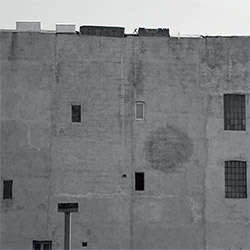
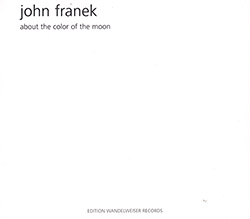

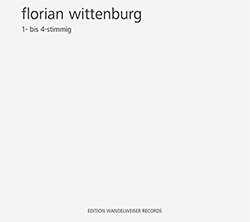
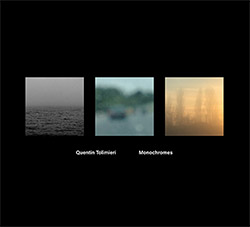
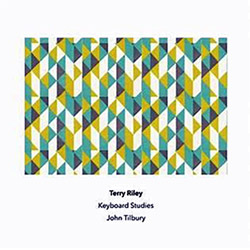
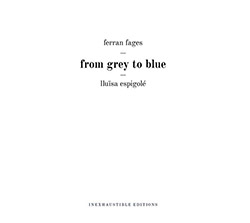

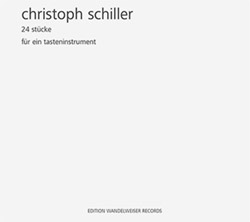
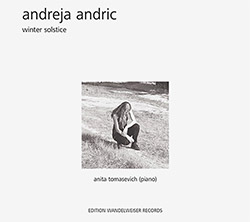
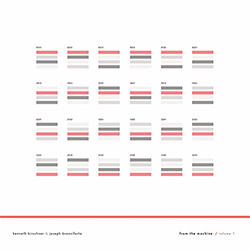


![Guy, Barry / Ken Vandermark: Occasional Poems [2 CDs]](https://www.teuthida.com/productImages/misc4/34849.jpg)
![Novoa / Carter / Mela Trio: Vol.1 [VINYL]](https://www.teuthida.com/productImages/misc4/35236.jpg)


![Elephant9 : Mythical River [VINYL]](https://www.teuthida.com/productImages/misc4/34624.jpg)
![Evans, Peter (Evans / Eldh / Black): Extra [VINYL]](https://www.teuthida.com/productImages/misc4/35279.jpg)

![McPhee, Joe: Straight Up, Without Wings [BOOK]](https://www.teuthida.com/productImages/misc4/35454.jpg)
![Jeck, Philip: rpm [2 CDs]](https://www.teuthida.com/productImages/misc4/35455.jpg)













![Barker / Parker / Irabagon: Bakunawa [VINYL]](https://www.teuthida.com/productImages/misc4/35533.jpg)
![Blaser, Samuel / Marc Ducret / Peter Bruun: Dark Was The Night, Cold Was The Ground [VINYL 10-inch]](https://www.teuthida.com/productImages/misc4/35492.jpg)








![Warren, Kenny (Warren / Hoffman / Ellman): Sweet World [VINYL]](https://www.teuthida.com/productImages/misc4/35451.jpg)




![Blake, Ran / Dave Knife Fabris: Live Amsterdam 2006, First Visit [CD + POSTCARDS]](https://www.teuthida.com/productImages/misc4/35275.jpg)













![DNS: Taking Big Bites Of The Khandas Three Cafes Deep [2 CDs]](https://www.teuthida.com/productImages/misc4/35334.jpg)




![Cleaver, Gerald: The Process [VINYL]](https://www.teuthida.com/productImages/misc4/34966.jpg)




![Alva Noto: HYbr:ID II [VINYL 2 LPs]](https://www.teuthida.com/productImages/misc4/35201.jpg)

![Baron, Derek / Luke Martin: Distinct and Concealed [CASSETTE + DOWNLOAD]](https://www.teuthida.com/productImages/misc4/35079.jpg)

![Lyle, Erica Dawn : Colonial Motels [CASSETTE + DOWNLOAD]](https://www.teuthida.com/productImages/misc4/35080.jpg)









![Sanna, Claudio: Compositori Sardi Contemporanei II [2 CDs]](https://www.teuthida.com/productImages/misc4/35317.jpg)







![Zurria, Manuel: Fame di Vento [3 CDs]](https://www.teuthida.com/productImages/misc4/35167.jpg)

![Granberg, Magnus / Nattens Inbrott / Skogen: Holde Traume, Kehret Wieder! [2 CDs]](https://www.teuthida.com/productImages/misc4/35038.jpg)
![Frey, Jurg: Outermost Melodie [2 CDs]](https://www.teuthida.com/productImages/misc4/35039.jpg)

![Pavone, Jessica: Reverse Bloom [VINYL]](https://www.teuthida.com/productImages/misc4/34895.jpg)




![Modney (Modney / Wooley / Gentile / Roberts / Pluta / Symthe / ...): Ascending Primes [2 CDs]](https://www.teuthida.com/productImages/misc4/34852.jpg)









![Elephant9 with Terje Rypdal: Catching Fire [VINYL 2 LPs]](https://www.teuthida.com/productImages/misc4/35355.jpg)
![Deerlady (Obomsawin, Mali / Magdalena Abrego): Greatest Hits [VINYL]](https://www.teuthida.com/productImages/misc4/34876.jpg)




![Haino, Keiji: Black Blues [2 CDs]](https://www.teuthida.com/productImages/misc4/35109.jpg)



![Surplus 1980: Illusion of Consistency [CD]](https://www.teuthida.com/productImages/misc4/35069.jpg)
![Staiano, Moe: Away Towards the Light [VINYL + DOWNLOAD]](https://www.teuthida.com/productImages/misc4/35037.jpg)



![Caveira (Gomes / Sousa / Abras / Ferrandini): Ficar Vivo [VINYL]](https://www.teuthida.com/productImages/misc4/34643.jpg)
![Gregg, J. J. / David Van Auken: Lunar Prairie [CD w/ DOWNLOAD]](https://www.teuthida.com/productImages/misc4/34611.jpg)

![Coultrain: Mundus [VINYL]](https://www.teuthida.com/productImages/misc4/32439.jpg)
![Mattin: Songbook #6 [VINYL]](https://www.teuthida.com/productImages/misc4/27317.jpg)
![Punkappella: Wake Up [7-inch VINYL]](https://www.teuthida.com/productImages/misc4/17519.jpg)
![Residents, The: WARNING: UNiNC.: Live And Experimental Recordings 1971-1972 [VINYL 2 LPs]](https://www.teuthida.com/productImages/misc4/31521.jpg)
![Coultrain: Phantasmagoria [VINYL]](https://www.teuthida.com/productImages/misc4/30142.jpg)
![Lennon, Sean Ono: Asterisms [VINYL]](https://www.teuthida.com/productImages/misc4/34517.jpg)

![Coley, Byron: Dating Tips for Touring Bands [VINYL]](https://www.teuthida.com/productImages/misc4/17906.jpg)

![Lost Kisses: My Life is Sad & Funny [DVD]](https://www.teuthida.com/productImages/misc4/lostKissesDVD.jpg)